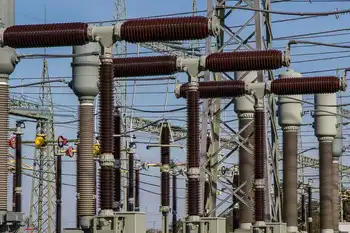Ontario's hunt for 7,500 megawatts
By Toronto Star
NFPA 70b Training - Electrical Maintenance
Our customized live online or in‑person group training can be delivered to your staff at your location.

- Live Online
- 12 hours Instructor-led
- Group Training Available
No one (except the coal industry and the union representing the workers in the targeted plants) questions the need to get the province off coal. Even the previous Conservative regime agreed that the generating plants are a major source of air pollution and must be shut down.
Rather, the question is one of timing.
The five coal-fired plants in Ontario provide the province with about 7,500 megawatts of electricity, or about 30 per cent of our capacity. How can we replace all that power in just more than two years?
The Liberal government began supplying some answers this week with the announcement of deals with private-sector consortia to build two new natural gas-fired generating plants in Sarnia by the end of 2007.
Together, these two plants will supply some 1,600 megawatts of power — enough to replace the coal-fired plant in nearby Lambton, says Energy Minister Dwight Duncan. And the Lakeview coal-fired plant in Mississauga is due to shut down in two weeks.
But that still leaves two other plants in northwestern Ontario and Nanticoke on the shore of Lake Erie, the biggest coal-fired plant in North America with an output of 4,000 megawatts.
How is Duncan going to replace that power?
The energy minister says that he will soon announce deals to provide another 800 or so megawatts through conservation measures, co-generation projects or more gas-fired plants.
As well, another 515 megawatts are due to come on line this fall with the retrofit of a mothballed Pickering nuclear reactor. And 395 megawatts of renewable energy projects (mostly windmills) are in the works.
But all these additions will still leave the province well short of what it needs to close Nanticoke.
As a result of a request for proposals that it issued last fall, the government received 33 bids to build almost 9,000 megawatts of new capacity — more than enough to close Nanticoke.
The problem is that many of these bids are costly. Coal, for all its environmental faults, is cheap.
Duncan will soon release a consultant's study that measures the "true cost" of coal by factoring in the cost of illnesses attributable to air pollution.
But there are limits as to how far he can go in driving up electricity rates before encountering a serious backlash from both consumers and industry.
(An aside: Electricity ratepayers could get some relief from the federal government's $10 billion Kyoto plan, unveiled this week, but it is not clear how much of this money will be available to help pay for the closing of the coal-fired plants.)
On the drawing board are plans to import hydro-electric power from new dams in Manitoba and Labrador, but these will come on-line well beyond the government's 2007 deadline, if ever.
Ditto for a new nuclear plant, which isn't even on the drawing board at this point.
So, how is the government going to keep its promise to close all the coal-fired plants by the end of 2007?
"We are working toward that goal as aggressively and energetically as we can," says Duncan.
Insiders say Duncan will shortly unveil his plan for closing the plants — perhaps in a speech May 2 to the Canadian Club.
But it is difficult to see how Nanticoke can fit in that plan — at least not by the end of 2007. "There's just no silver bullet out there (to replace 4,000 megawatts of power)," explains a senior government official.
The question is whether the public will applaud the Liberals for getting halfway to their ambitious goal or condemn them for breaking another promise.











